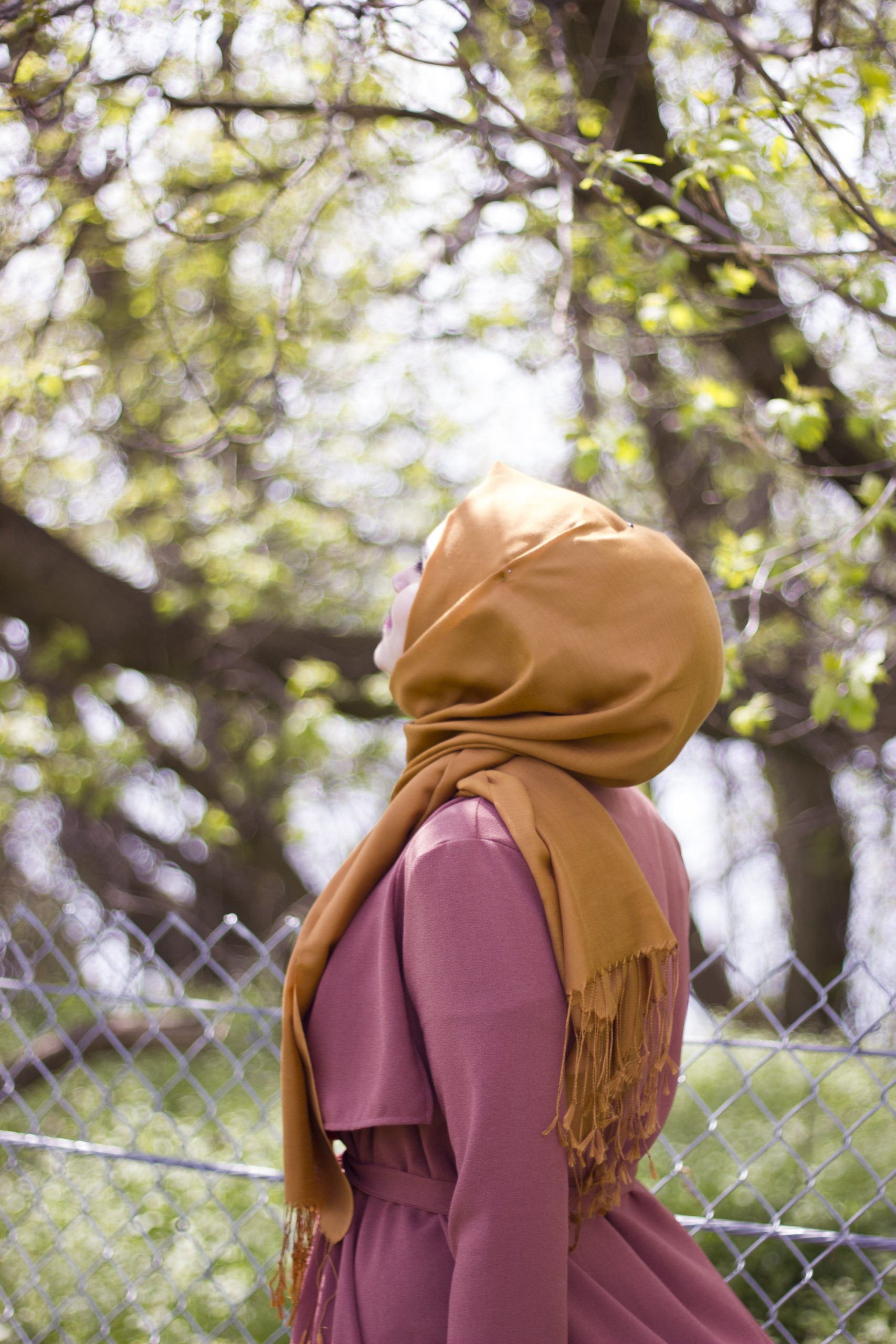Survivor Story
Ayesha
Content warning: emotional, physical, and sexual abuse
Ayesha was 22 and living in Pakistan with her family. An 18-year-old Pakistani man in the US came to visit her family and changed her life forever. The man was her father’s nephew, and her father had arranged for them to marry in accordance with the patriarchal customs of Pakistan. But Ayesha was not interested in her father’s choice for her future husband. She felt betrayed because she was an educated woman with a Master’s Degree in plant sciences. She was older than him and saw him as a brother, not a partner.
Her father insisted Ayesha marry the man and move with him to the United States, threatening to hurt her mother and siblings if she didn’t obey. From the very first day, it was a nightmare. Ayesha’s husband’s family saw her as the housekeeper, even for his younger brother. She could only leave the house if her husband gave her permission or accompanied her, and she wasn’t allowed to talk to her family back in Pakistan on the phone. Her husband forced her to have intercourse with him more than once a day.
Ayesha’s husband moved her bed down to the windowless basement and made her live there by herself. One morning after a huge argument, he locked Ayesha in the room. When he finally let her out, she ran out of the house and onto the street. He followed her and dragged her down the street. A stranger saw the situation and called the police. Her abuser lied and told the police that she had psychological problems. The police drove Ayesha to her abuser’s sister-in-law’s house, and she was brought back to her abuser’s home.
When Ayesha returned, the family said they had made a decision about her but would not tell her what the decision was. Ayesha was scared and made her own decision, difficult but life-changing, not to stay there anymore. The next morning, she tried again to leave after a very bad night. With her door blocked to prevent her from leaving, Ayesha jumped out the window of the bedroom, with no shoes and no coat. She hurt her feet but climbed the fence to the street and kept running until she reached a store down the block, where a woman called the police for her.
When the police arrived, they arrested Ayesha’s husband for domestic violence. They took Ayesha to the police station and contacted Casa Myrna. Advocate Ilana picked Ayesha up and took her to our Teen Parenting Program (TPP), where she was finally free and safe.
When Ayesha left her abuser’s home, she didn’t know anyone in Boston or in the country for that matter. She was completely alone. But she knew she did not want to make a family with her abuser. “Casa Myrna became my family,” Ayesha explains.
For over two years, Ayesha worked to change her life and find her way to self-reliance. Casa Myrna’s legal advocates helped her divorce her abuser and stabilize her immigration status. Our trauma-informed counseling team helped her to heal from her experience and mend relations with her family in Pakistan. With assistance and coaching from our Economic Stability program, Ayesha learned practical money management and employment readiness skills. And when she was ready to strike out on her own, Casa Myrna’s housing advocates helped her to locate an affordable apartment on her own.
Ayesha has remained in safe, stable housing since 2018. She worked at two different supermarket positions before joining the Casa Myrna team in 2020. Starting as relief staff for our residential programs, Ayesha is now a Housing Advocate working with youth and young adults from ages 18-24.
Ayesha helps to connect survivors with landlords and brokers so they can find an apartment, helping them with the move and future permanent housing. She was once at TPP looking for an apartment and remembers the excitement she felt about moving. She also knows the long-lasting, stabilizing effect that having a secure place away from one’s abuser can have. Ayesha stresses to other survivors that there are resources available, regardless of one’s immigration status.
In the future, Ayesha wants to pursue her dream of becoming a plant scientist. She plans to continue helping survivors in some capacity and share her experience with others.
“What I am today, I am because Casa Myrna helped me,” Ayesha exclaims.


